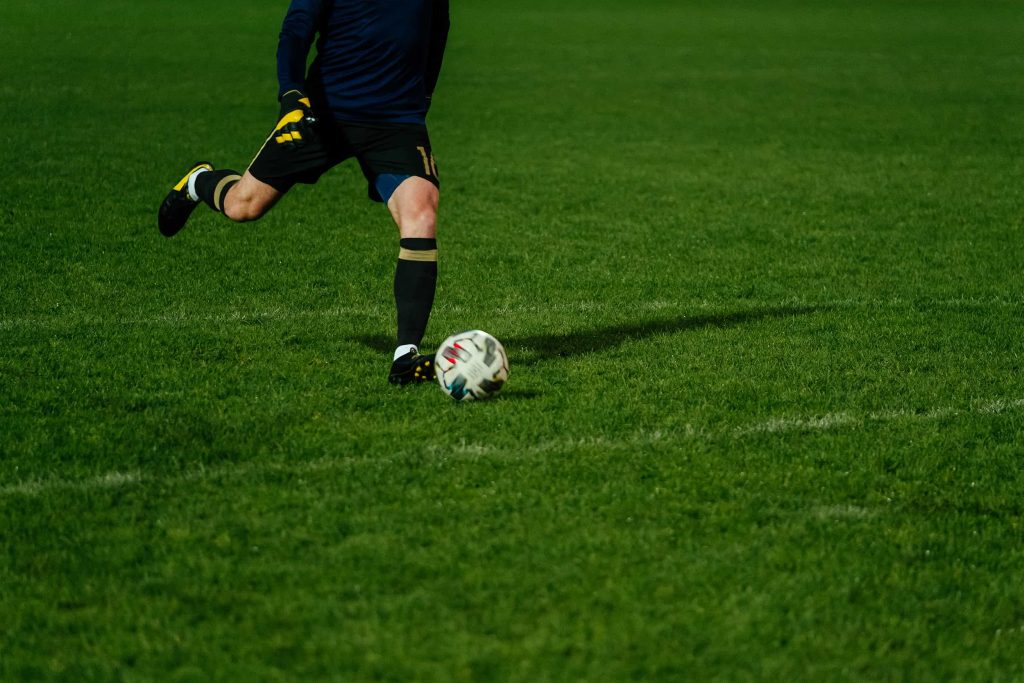Lucien Favre’s appointment as head coach in the summer was a big cause for optimism given his Bundesliga experience and proven record for developing youngsters at 1st team level. So far this season the team have performed slightly better than last season, but their statistical overperformance has highlighted a cause for concern. 29 goals scored across three different competitions have excited fans and neutrals alike, however, xG models show that they’ve simply overperformed. They’re top scorers in the Bundesliga but have only the 9th best shots per game percentage.
The underlying reasons for their overperformance are mostly tactical but personally, I feel that a lot of random events have played their part. such as Diallo’s red card against Hoffenheim, their all-of-a-sudden amazing set-piece ability and their 7-0 thrashing of Nurnberg have all contributed to Dortmund’s efficient statistical over performance. Initially, I wanted to delve deep into the tactical approach of Favre so far at Dortmund but I haven’t for two reasons:
1. Lee Scott has already provided an accurate tactical analysis here
2. Dortmund haven’t played against enough high-quality opposition (bar Hoffenheim), thus I feel that drawing conclusions to the success of Favre’s reign so far at this stage would be ludicrous.
Maybe I’ll have a piece up in January during the winter break. As for now, let me quickly highlight the main problem…creating chances in possession
Possession-based attacking style:
Favre has continued the tradition of using a possession-based style, one that has been used since the days of Thomas Tuchel. Unfortunately neither he or the previous two coaches can claim success with it. The current side has shown glimpses of clever positional attacking and effective counter-pressing, however, Favre’s style is more cautious. I hate to compare the two coaches (Tuchel and Favre) but Tuchel’s legacy is a benchmark that any coach should use to create a successful attacking team in possession. So why have Dortmund scored so many goals, if their technical possession hasn’t been great thus far?
Well for starters it’s important to understand what hasn’t been done well so far. Against organized teams like Hoffenheim and Club Brugge (both teams who used a back 3), Dortmund struggled to create space in attacking areas. Both teams were narrow down the centre and maintained compactness throughout their defensive block’s. In these instances(from a positional-play point of view), Dortmund struggled to pin-back those defensive lines and were constantly outnumbered in midfield. Structurally a base 4-2-3-1 wasn’t ideal, especially because of the personnel used in those games.
Usually, Favre opts for deep-lying playmakers Thomas Delaney and Axel-Witsel together. However Hoffenheim and Brugge made sure those two never had time and space on the ball by staying compact, using cover shadows to prevent balls into the centre and to force them sideways and wide. Mahmoud’s introduction late in the Brugge game changed the dynamic, as his distribution and movement into advanced areas allowed the team to get the winner.
Against Hoffenheim, Diallo’s red card was the catalyst to allowing Dortmund back in the game. Hoffenheim’s deep midfield pressing was excellent. Even Manchester City found it tough to find space within their block during their Champions League fixture. When Diallo was sent off, Dortmund had to use a back 3 during the build-up. Firstly this allowed them to bypass Hoffenheim’s first line of forwards (with a defender carrying the ball infield) and secondly, there was a direct channel into the wingers, which meant that not they could instantly bypass the midfield line too. This opened up the game dramatically. Pulisic equalized but Belfodil should’ve won it at the death. He missed from three yards.
Another organised opponent Dortmund faced was Bayer Leverkusen, although their approach fizzled out in the 2nd half. Dortmund’s inability to play out from the back against an intense and organized high-pressing side cost them two 1st half goals. There’s actually a myriad of factors I want to detail here but the main point is that Dortmund generally only create chances against disorganized sides. The team performs best when the opposition lose control of the game or tire towards the end(hence the reason they’ve scored most of their goals in the last third of the game). So they’ve been poor in possession but their counter-attacking has been excellent, Jadon Sancho and Marco Reus being the key players in this area. Speed and skill have helped them not only get to the opposition but convert their chances too – Paco Alcacer has been in great goalscoring form.
The one positive aspect of Favre’s possession-based style is that he places a high emphasis on creating quality shot opportunities in and around the box. Similar to Tuchel, he enjoys an element of directness to his attack, which is partly the reason why Dortmund have scored so many but struggled as well to trouble organized teams. The team’s attacks are channelled mainly down the centre and half-spaces, and you’ll often find the front trying to combine with each other to create chances from there.
Against Leverkusen and Augsburg, they were able to attack directly because they were able to break lines of pressure and get in behind the midfield lines of their opponents via the fullbacks who provided width. They have the joint 2nd lowest number of crosses too in the Bundesliga which further reinforces my point. This has an effect on many other areas within their game model but mainly it means that disorganized teams can get exploited very, very easily. Remember how free-scoring Tuchel’s side were three years ago? Well ,this side has shown similar signs in this respect, scoring 3 against Eintracht Frankfurt and Monaco, 4 against Leipzig, Leverkusen and Augsburg and 7 against Nuremberg. Borussia Dortmund’s goal per game average is 3,3 in the Bundesliga! Yes people, that’s pretty darn good.
Conclusion:
Lucien Favre’s reign at Dortmund so far is inconclusive aside from the fact that the team’s performance will regress to the mean, which is dangerous because they’ll still be conceding many chances. The distribution in midfield and around the pitch can be very cautious and low risk, meaning not many organized teams will be troubled facing Borussia Dortmund.
I’m actually predicting that the team will lose it’s first game of the season next week against Atletico Madrid. There needs to be an all-round improvement in the process of progressing past compact teams using a positional style but it is highly unlikely that we’ll see the Swiss manager implement such a style.
I guess at the moment all we can do as fans is to pray that Favre comes up with a creative approach to create more chances, and maintain defensive balance simultaneously, because I get the the feeling that we’re in for a mid-season dip, similar to last years one. Oh and let’s not forget the Bayern Munich juggernaut.



